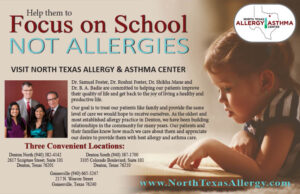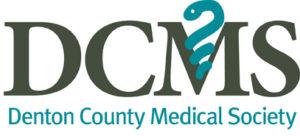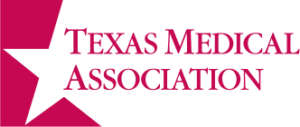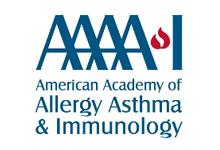 It is that time of year again – schools are back in session! Every school year is a very busy time for teachers, students and parents; however, the current pandemic adds another layer of stress and concerns. Most schools require an allergy, asthma and food allergy plan for those who qualify. If your child needs a plan, make an appointment with your doctor or your allergist to get updated treatment plans!
It is that time of year again – schools are back in session! Every school year is a very busy time for teachers, students and parents; however, the current pandemic adds another layer of stress and concerns. Most schools require an allergy, asthma and food allergy plan for those who qualify. If your child needs a plan, make an appointment with your doctor or your allergist to get updated treatment plans!
Here are some tips on what you can do as the 2021-2022 school year begins.
Allergies and Asthma
If allergy and/or asthma symptoms are not well controlled, it can lead to increased absences from school and interfere with school performance. Common triggers for allergies and asthma include dust mite, mold, and animal dander. Keep in mind, grass pollen and weed pollen counts tend to be high at the start of the school year as well. Exercise and sports activities can trigger asthma. Antihistamines and nasal sprays are a great way to help with the symptoms of allergies. If your child is on immunotherapy or allergy shots, drops, or tablets, it is important to adhere to this type of long-term treatment throughout the school year. It is equally important to stick to your asthma plan throughout the school year to prevent asthma flare-ups. For those who have exercise-induced asthma, 2-3 puffs of a short-acting inhaler 15 minutes before exercise or recess might be necessary.
Food Allergies
Studies have shown that about 20% of children with food allergies have had a reaction from accidentally eating food allergens while at school. As a parent, it is important to get to know your child’s school policy on how they handle food allergy reactions. Educating your child, your child’s school and avoiding known food allergens is key in prevention of food allergic reactions. Despite everyone’s best efforts, accidental ingestions can still occur. Epinephrine is the treatment of choice for anaphylaxis and is lifesaving! There are several epinephrine autoinjector devices available. Get to know your device and learn how to use it. These devices have an expiration date. Make sure you get an updated epinephrine device before school starts!
COVID-19
It is important to remember that the COVID-19 pandemic is a constantly evolving situation. At this current time, the CDC and the American Academy of Pediatrics report that students benefit from in person learning and recommend in person instruction in Fall 2021. Due to the circulating and highly contagious Delta variant, the CDC now recommends universal indoor masking by all students 2 years of age and older, staff, teachers, and visitors to K-12 schools, regardless of vaccination status. If your child is eligible for the COVID vaccine, it is strongly recommended as it helps prevent complications and a more severe outcome from actual COVID infection.
If your child develops symptoms of an infection (fever, chills, gastrointestinal symptoms, etc.) they should not go to school and instead be seen by a healthcare provider for testing and further care. It is important to keep in mind that infections can trigger allergy symptoms and asthma flare-ups. Thus, prevention of common infections in addition to COVID is important. Good handwashing and getting a flu vaccine are a few other measures to implement as we start this school season.
Come see us for help!
If your child has allergies, asthma, or food allergies, our board-certified allergists at North Texas Allergy & Asthma Center can help you with all your back-to-school planning. We provide all our patients with up-to-date action plans for allergic rhinitis, food allergy, anaphylaxis and asthma.
If you have questions regarding COVID-19 vaccinations, please contact our office for an appointment with any our board-certified allergist/immunologists.
SHIKHA MANE, MD
Board Certified Allergist







